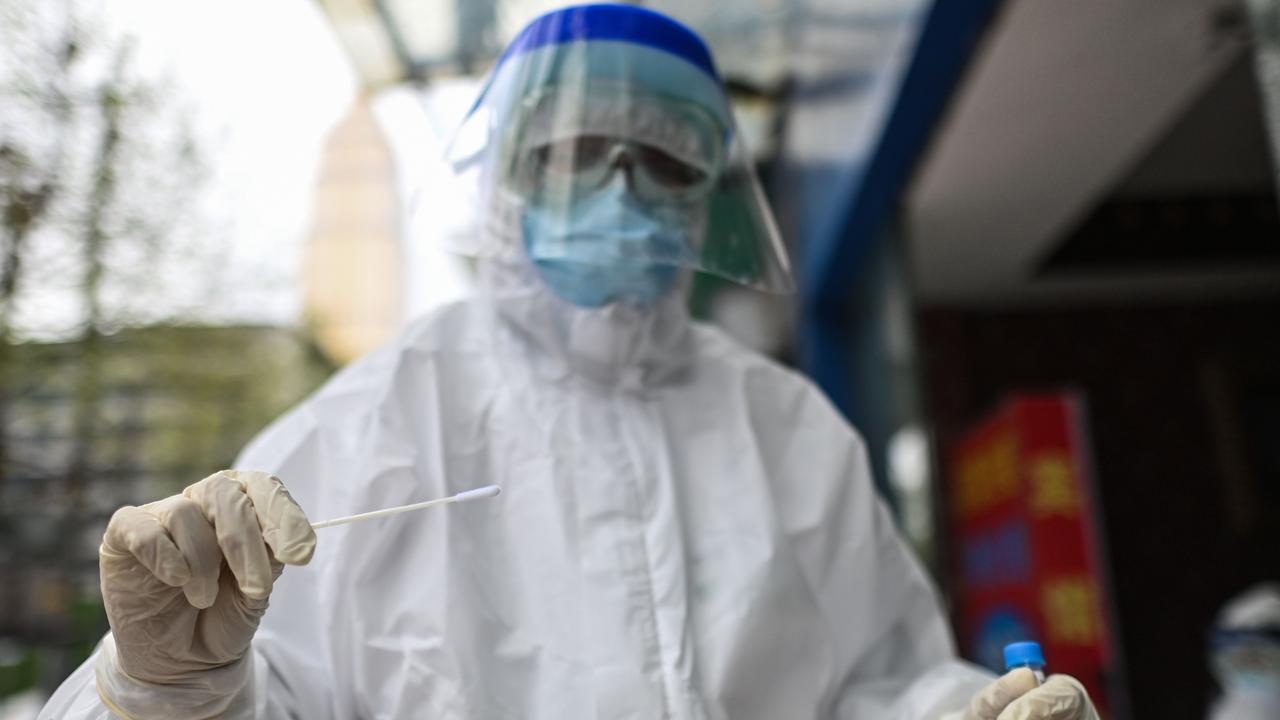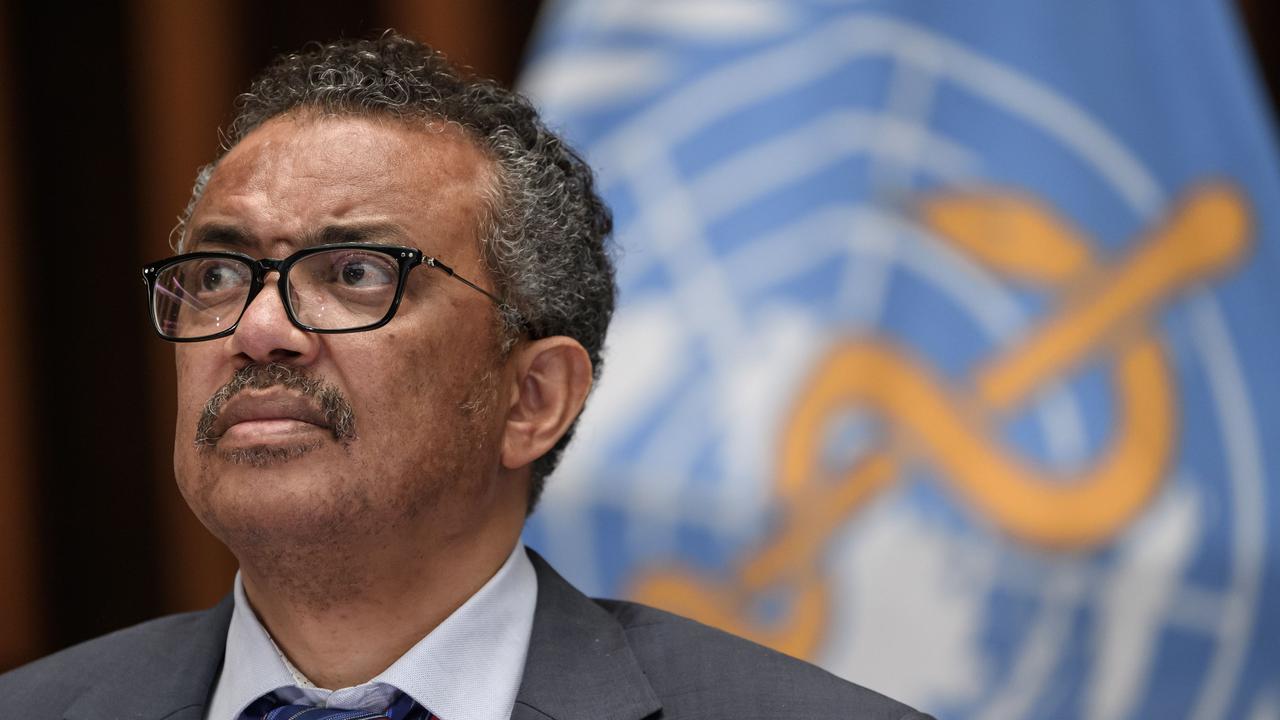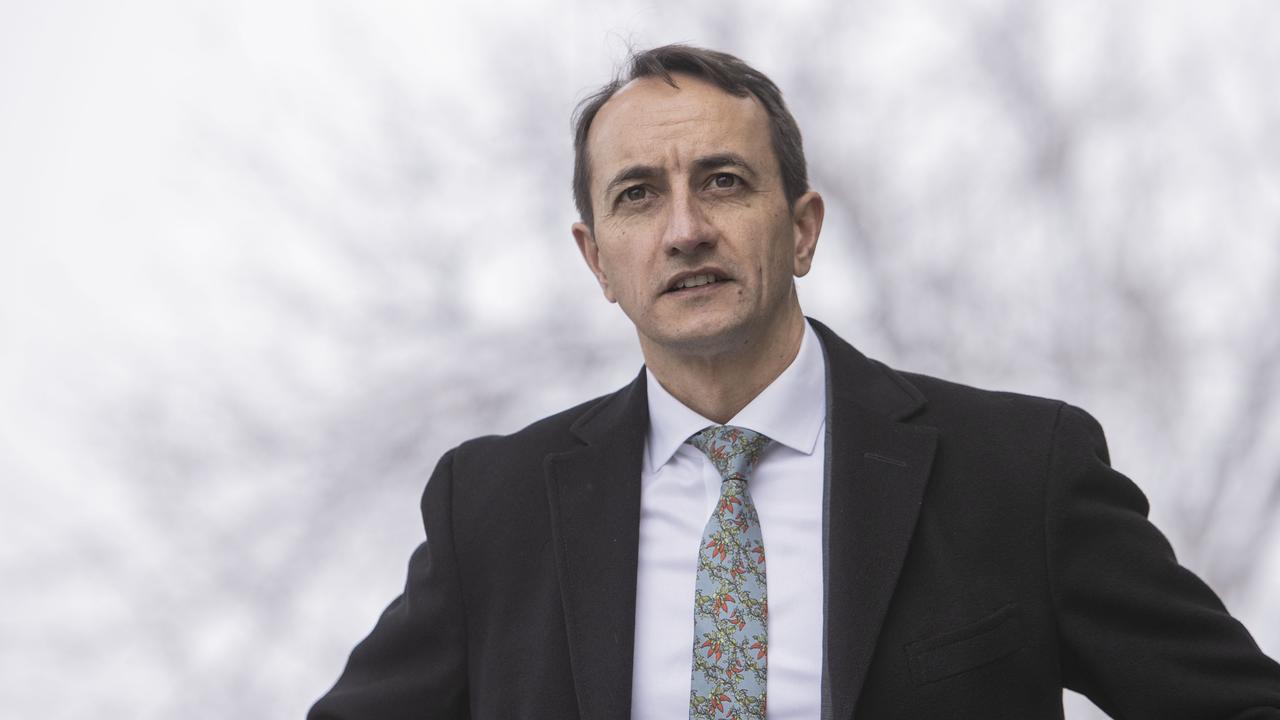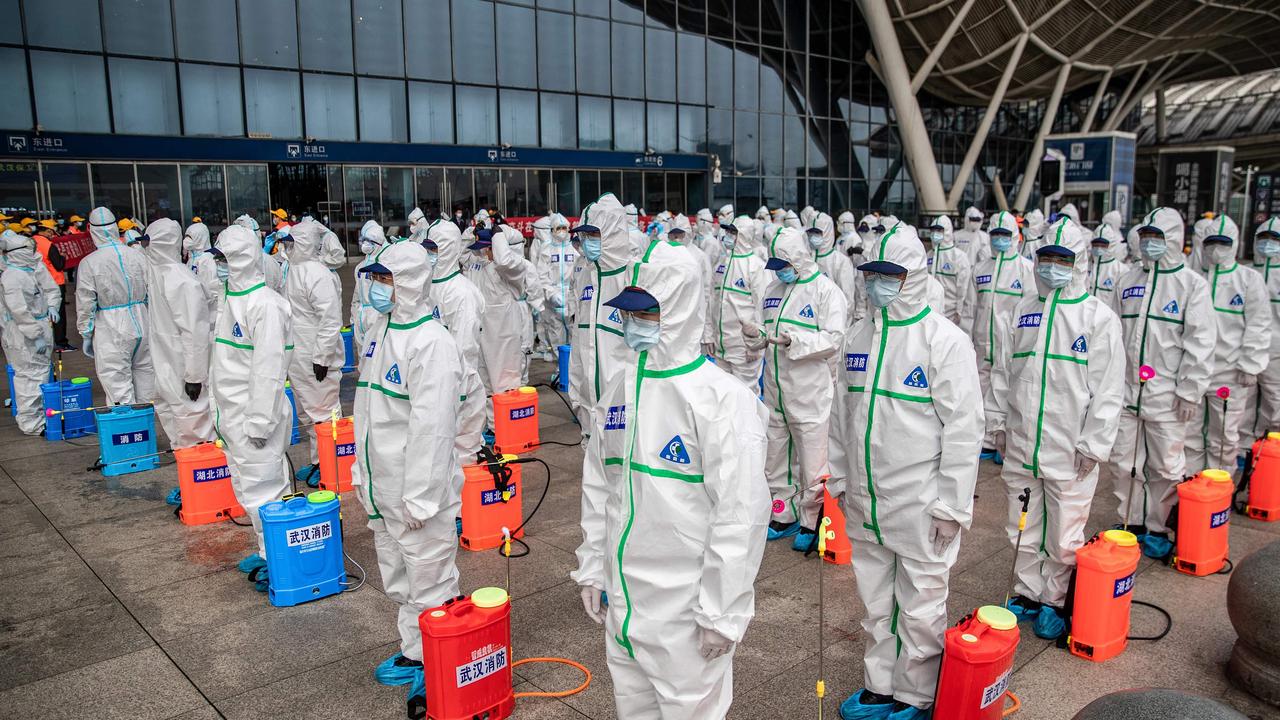WHO didn’t visit Wuhan on its three-week virus investigation trip to China
WHO experts spent the last three weeks in China starting a probe into how the coronavirus pandemic began, but amazingly they skipped a crucial location.
It’s widely understood that the coronavirus pandemic sparking global chaos began in the Chinese city of Wuhan, but amazingly World Health Organisation experts beginning an investigation into the virus have not stepped foot in the city.
The admission from the WHO overnight is fuelling concern among some Western governments that the international probe into the origins of the coronavirus will be a dud.
WHO director general Tedros Adhanom Ghebreyesus told reporters overnight that two investigators from the health body flew into China from Geneva and spent the past three weeks there.
However, he admitted they had no intention to travel to Wuhan where the first cases of novel coronavirus were detected in December 2019. The virus has gone on to kill more than 800,000 people around the world.
He said the team was merely laying the groundwork for a full international mission to investigate the virus.
RELATED: Vaccine success - but there’s a catch

RELATED: The best face masks to buy
The decision not to visit Wuhan has fuelled concern the Chinese government could knock back any attempt at an impartial inquiry into COVID-19.
Liberal MP Dave Sharma said he was “alarmed” the team spent so much time in China but did not visit Wuhan, the “origin of the outbreak” and the home of the Wuhan Institute of Virology.
“If this investigation is to help prevent future pandemics, it must be independent and enjoy unfettered access,” Mr Sharma said.
“The WHO needs to put the public health interest of the world before the sensitivities of any particular nation.”
After initially rejecting calls from Australia, the US and other countries for a probe into the outbreak, Chinese president Xi Jinping in May endorsed a WHO-led inquiry.
But the WHO mission “to identify the zoonotic source of the virus and the route of introduction to the human population” – backed by more than 130 countries – has been plagued by concerns over transparency and access to key sites.
RELATED: Tropical travel bubble open to Aussies

Mike Pompeo, the US Secretary of State, said in July he believed the results of the inquiry would be “completely whitewashed”. In May, President Donald Trump terminated US ties with the WHO, which he said was under the “total control” of Beijing.
The fact that WHO officials didn’t visit Wuhan has fuelled further scepticism.
“The WHO delegation sat in Beijing for three weeks and got nowhere near Wuhan,” a senior US official told the Financial Times. “Any chance of finding a smoking gun is now gone.”
However, the WHO has defended its tactics, saying the three-week visit was just one part of a two-part process.
“The purpose of their visit was to prepare the conditions for the expert group that will travel to do the study,” Dr Tedros told reporters.
“So it wasn’t to start the study, but rather to develop the terms of reference and to prepare the conditions so that the international group can have … the things it needs to start the study.
“It was not their intention to start the study and they had no plan to travel to Wuhan.”
He said that when the international experts gather in China to officially start the study, they will “naturally” begin their investigation in Wuhan.
“It is the basics of inquiries like these to start the study from where the first report came and the first report of the virus came from Wuhan,” he said.

He said the WHO investigators who have just been in China also had a video conference with the Wuhan Institute of Virology.
Meanwhile, a top Chinese government’s diplomat claimed overnight it was unclear whether the coronavirus first originated in China.
Speaking during a visit to Norway, State Councillor Wang Yi said that, while China was the first country to report the existence of the virus to the World Health Organisation, “it does not mean that the virus originated in China”.
“Actually, for the past months, we have seen reports … showing that the virus emerged in different parts of the world, and may have emerged earlier than in China,” Mr Wang told reporters, speaking through an interpreter.
“Where did the virus first start and how it started … should be left to scientists and medical experts … It should not politicised or stigmatised. Who is patient zero? It is still unknown.”
The attacks on Australia over its push for the inquiry also continued this week, with a Beijing envoy likening Australia’s move to Brutus plotting against Julius Caesar in the days of ancient Rome.
Wang Xining, the Chinese embassy’s deputy head of mission, made the remarks in a rare public address as he spoke of the “indignation, anger and frustration” felt by China at Australia’s push for a global inquiry.
“It is approximately identical to Julius Caesar in his final days when he saw Brutus approaching him,” Mr Wang said.

China reacted with fury when Australia led calls in April for the independent probe into the virus.
Beijing subsequently imposed tariffs on Australian goods and warned Chinese tourists and students against visiting the country, citing alleged racial harassment against Asians.
Expanding on Beijing’s reaction, Mr Wang said Australia had “singled out” China in its call for an inquiry and had not given any notice of its plans.
“All of a sudden, they (the world) heard this shocking news of a proposal coming from Australia, which is supposed to be a good friend of China,” he said.
Mr Wang said Australia had “hurt the feelings” of China’s 1.4 billion people with its actions.
Sydney MP Mr Sharma hit back at Mr Wang on Wednesday.
“Hurt feelings??” he wrote on Twitter. “At latest count COVID-19 has killed 800,000 people worldwide and caused economic disruption on a scale not seen since the Great Depression.
“If getting to the bottom of what caused this generates some ‘hurt feelings’, I think that is the least of our concerns.”
Mr Wang added, subsequent China’s trade action against Australia’s lucrative beef, wine and barley industries was not a retaliation, but rather due to “technical issues”.




